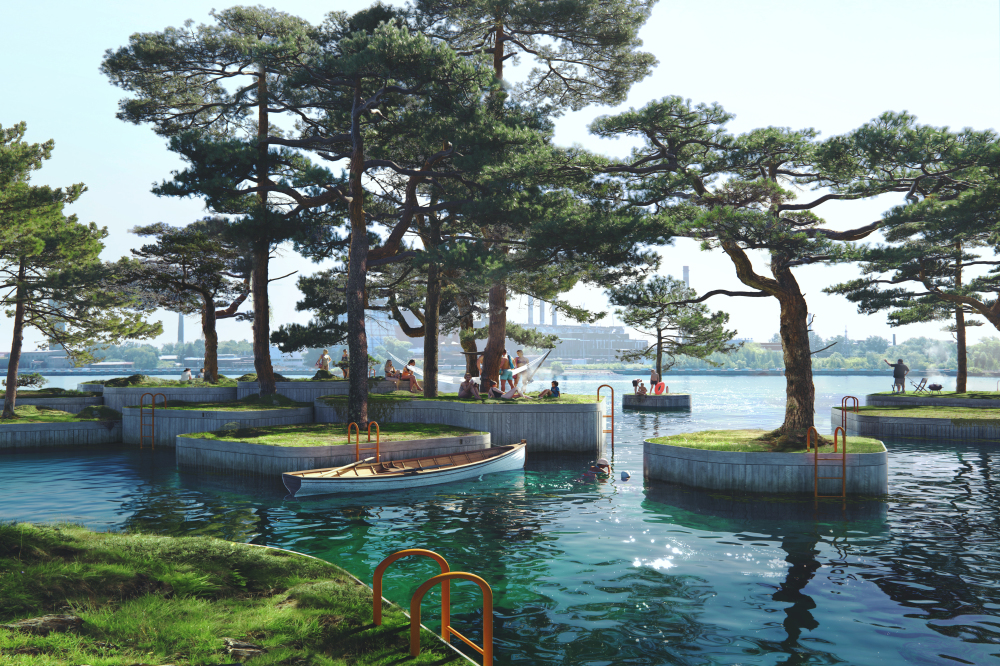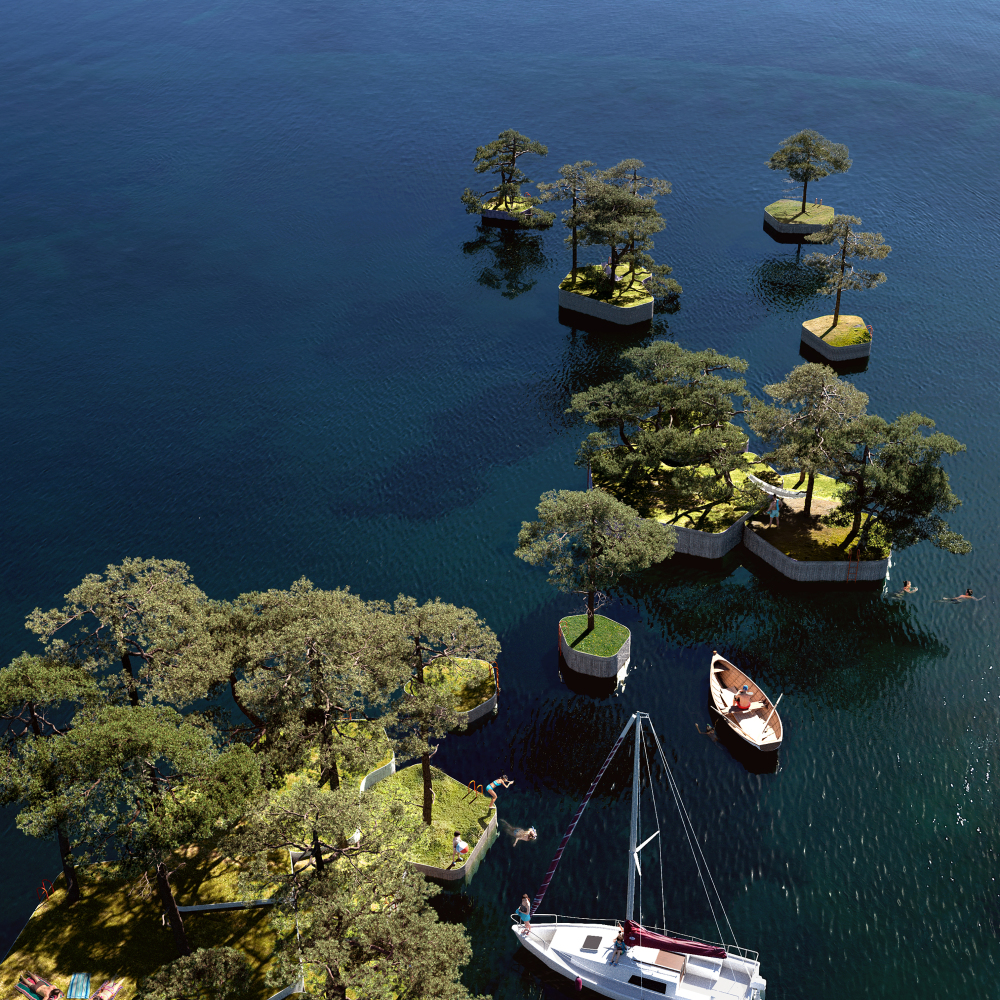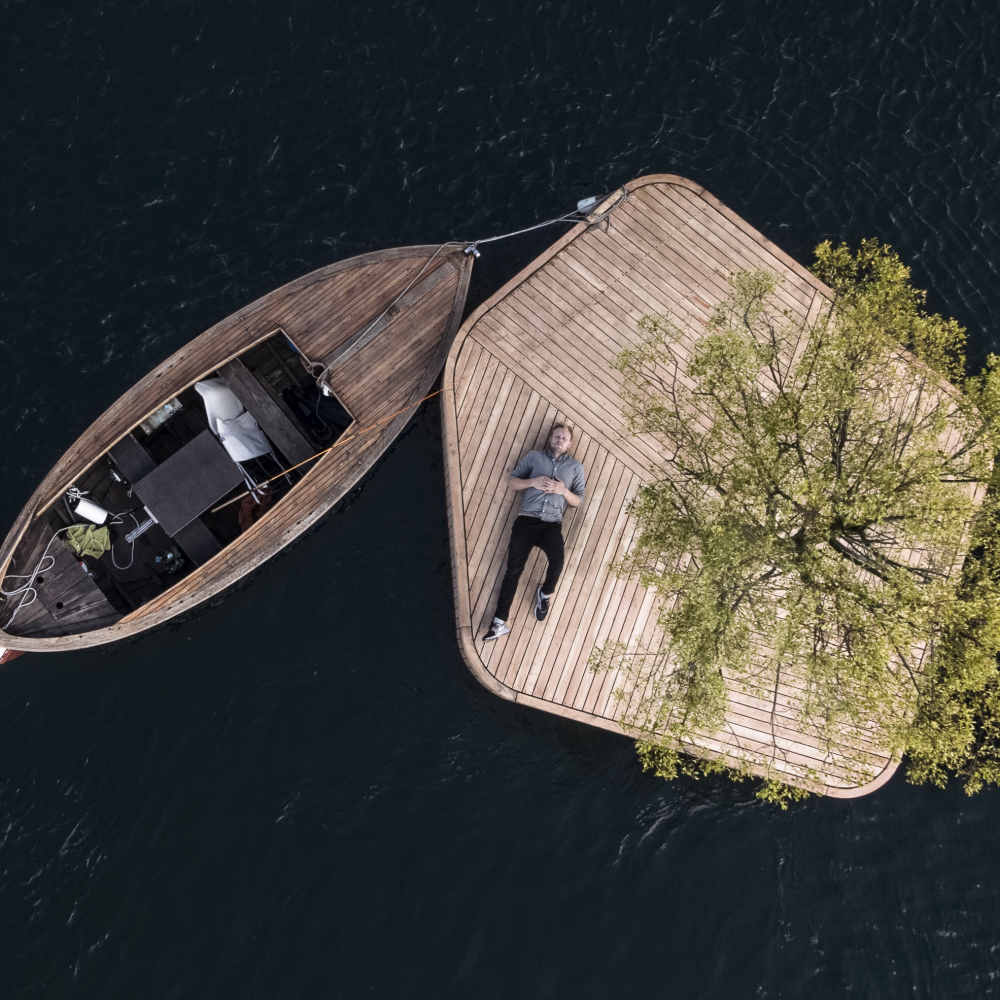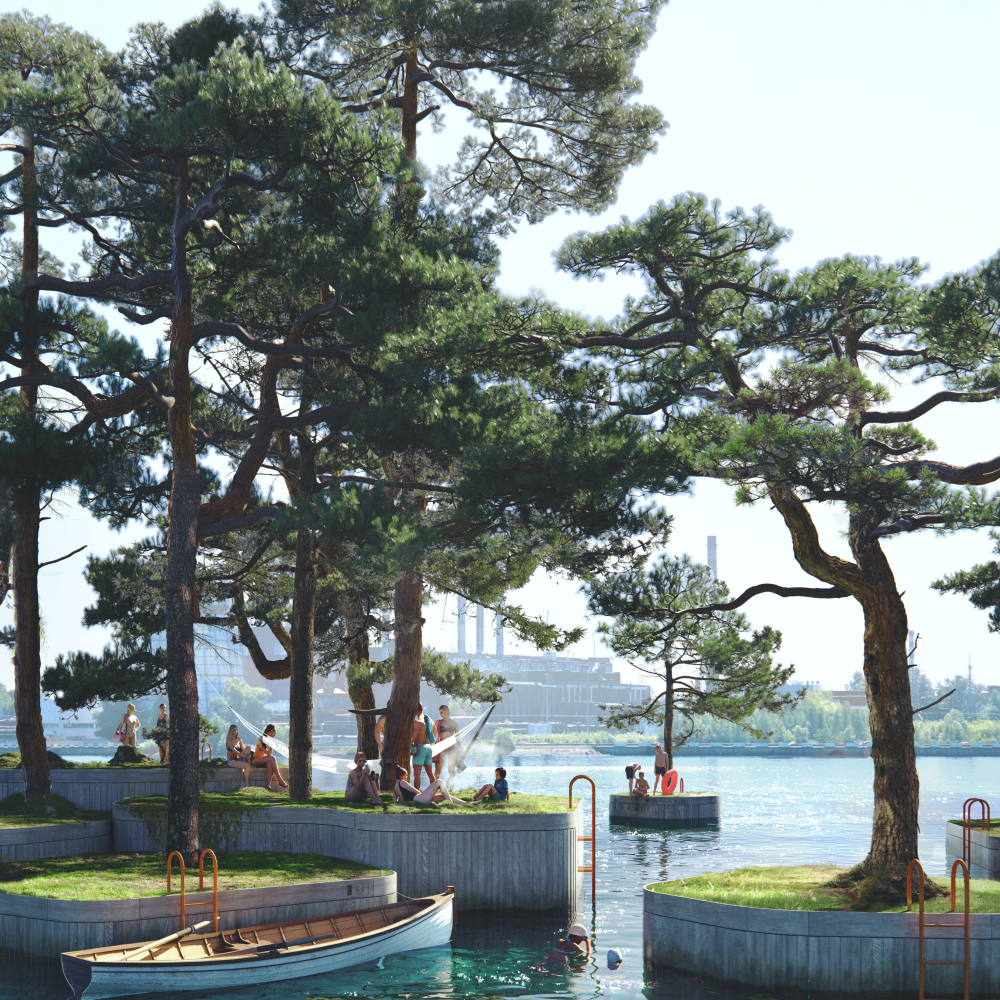As space in cities becomes ever more squeezed and property prices skyrocket, there is often little room for the humble public park.

Copenhagen set for world’s first ‘parkipelago’ – a network of floating island parks
Large, costly, and sometimes difficult to manage, urban green spaces can be easy prey for developers seeking a quick buck, but studies have shown repeatedly that parks provide an invaluable boost to health and happiness.

Danish capital Copenhagen has come up with an ingenious solution – mobilise the ample space in the city's harbour. The brainchild of local architecture firm Studio Fokstrot and Australian designer Marshall Blecher, the Copenhagen Islands project will see a 'parkipelago' of artificial atolls provide a space for locals to relax, fish, stargaze and swim.
A prototype island was completed in 2018 – a 25 square metre wood-panelled platform bearing a single linden tree – and has successfully hosted talks, photo competitions, and a barbecue. Three more islands will be added later this year.

Though anchored to the seafloor, the tethering is loose, and islands will be free to move wherever the wind takes them. Wrought from steel and recycled timber in the nearby Copenhagen shipyard. They will be planted with grasses, bushes and trees, and it's hoped that swans, ducks, geese, molluscs and fish will flock to the new ecosystem above and below the water.
A finalist for Beazley Design of the Year, the project is inherently flexible, and islands can be added or removed at any time. Floating saunas, floating gardens, floating mussel farms and a floating cafe have all been mooted.

It's not the first park project to move offshore, and next year will see the opening of the Little Island park in the middle of New York City's Hudson River. Though not 'floating' per se, the park will sit suspended above the currents on 132 tulip-shaped supports.

